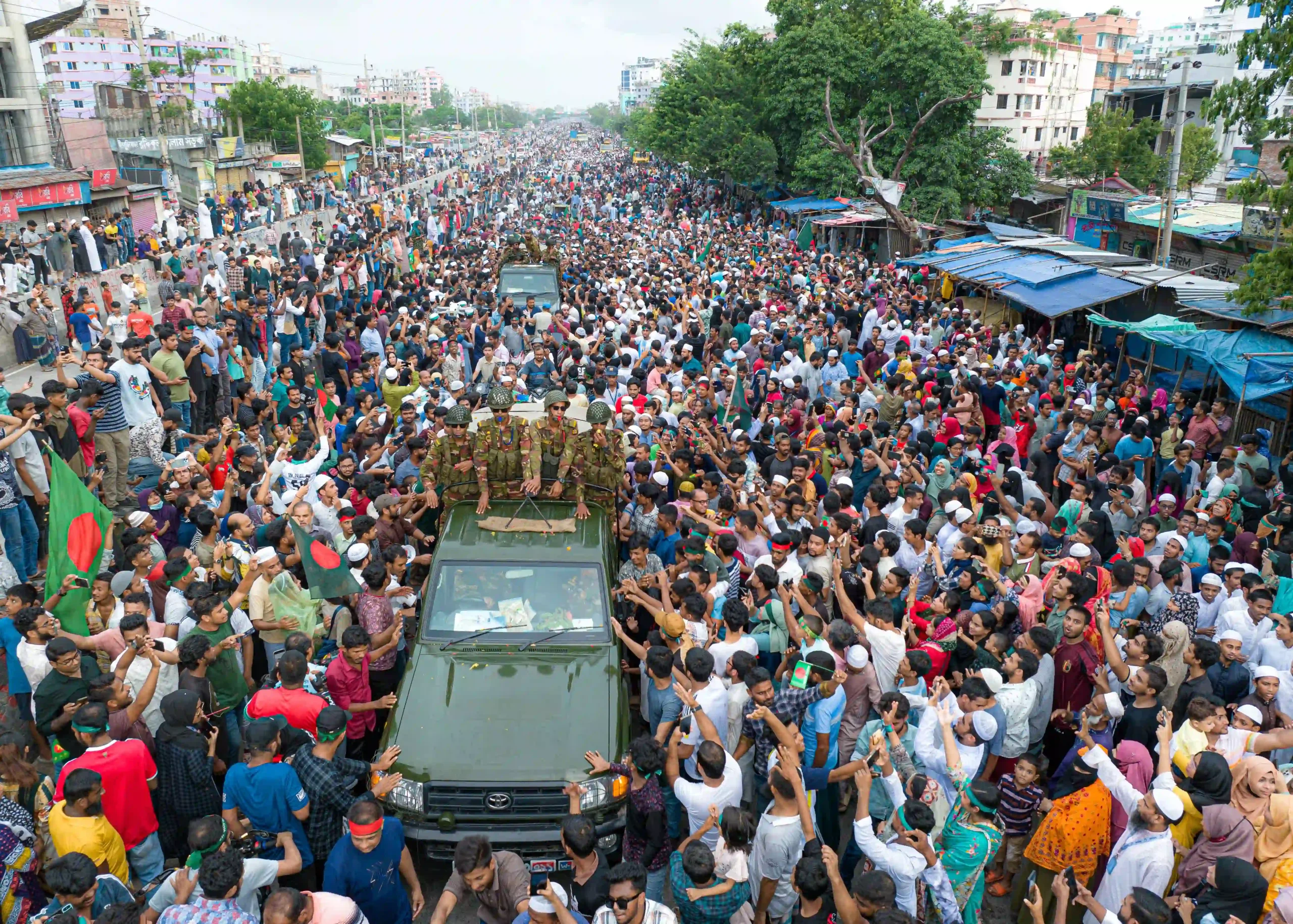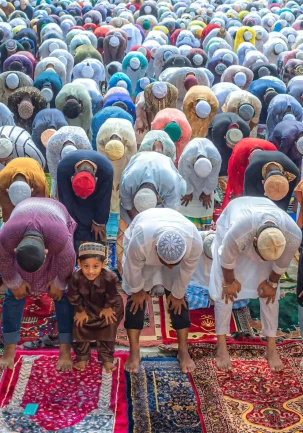Hand in Hand
In early 2024, Bangladesh was swept into turmoil as university students launched the Quota Reform Movement, later dubbed the “July Revolution.” Their demand was simple: a fairer government job system. The existing quotas, reserving 56% of jobs for specific groups—freedom fighters’ descendants, women, and minorities—were considered promoting nepotism and denying equal opportunities to many deserving candidates.
Prime Minister Sheikh Hasina’s government responded forcefully as the protests intensified. What began as peaceful demonstrations turned into violent clashes, and by the time the dust settled, over 2,000 lives were lost. The brutality of the government crackdown shocked the nation, exposing the deep-rooted corruption and authoritarian rule that had long festered.
The Bangladesh Army, ordered to suppress the uprising, made a crucial decision: they refused to turn their guns on their own people. On August 5, 2024, the streets of Bangladesh were filled with citizens offering gratitude to the soldiers and reaching out to touch their hands—a moment that symbolized hope and unity.
Under immense pressure, domestically and internationally, Sheikh Hasina resigned, signaling the end of an era. The protests forced the government to reevaluate its quota system, sparking long-overdue reforms. The “July Revolution” stands as a landmark in Bangladesh’s history—a vivid testament to the power of the people in the face of injustice.









